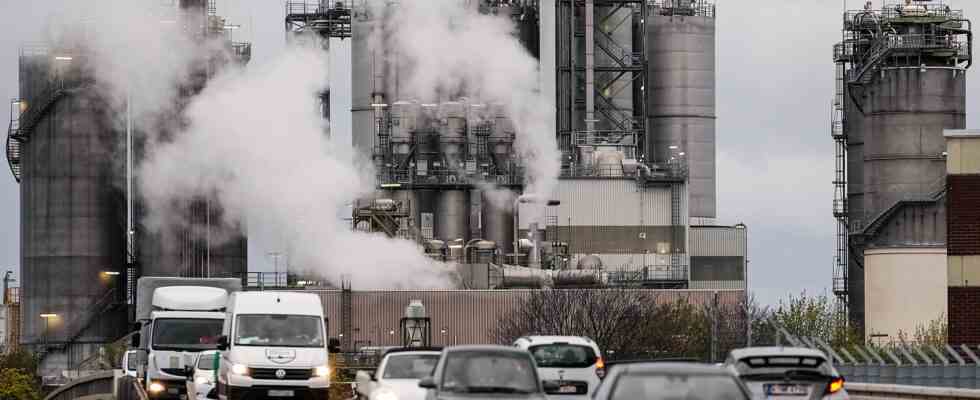Status: 08/08/2022 2:40 p.m
The specialty chemicals group Evonik wants to save up to 40 percent on natural gas. According to the company, this should also help to fill up the German storage tanks and supply private households.
One of the largest German chemical companies is making its production in Germany less dependent on natural gas. The Essen-based company wants to replace up to 40 percent of its natural gas consumption with other energy sources. “The energy supply at our European sites is largely secured even in the event of a gas freeze from Russia,” said Evonik CEO Christian Kullmann today.
At Evonik’s largest German site in Marl, liquefied petroleum gas (LPG) is now being used instead of natural gas to generate energy in a new gas-fired power plant. In addition, Evonik continues to operate a coal-fired power plant at the site in the Ruhr area, which was actually supposed to be mothballed this year. “By substituting natural gas with LPG and continuing to operate the coal-fired power plant, we can do without natural gas for the energy supply at our largest German site in Marl – and without any significant reduction in production,” said Kullmann.
Gas released for 100,000 households
LPG is a liquid gas, also known as autogas because it can be used as a fuel for internal combustion engines. The gases are a by-product of natural gas and oil production and also in refineries.
According to the Evonik boss, the natural gas volumes released could be used to fill up the natural gas storage facilities. The quantities released could supply up to 100,000 households in Germany with natural gas.
Worldwide, Evonik purchases around 15 terawatt hours of natural gas per year, most of which is used to generate energy and steam. The group is active in over 100 countries. A good third of the natural gas requirement is consumed in Germany.
Savings are also being made at BASF
Hardly any branch of industry is as dependent on gas as the chemical industry. It is the largest industrial energy consumer in Germany and is massively affected by the sharp rise in prices. A possible gas stop from Russia would hit companies in this sector particularly hard. The chemical group BASF had already announced that it would have to stop production if only about half of the ordered quantity arrived at the main plant in Ludwigshafen.
Tomorrow the European gas emergency plan to prepare for a possible stop of Russian gas supplies will come into force. Russia has already drastically reduced its supplies to the EU. According to the EU Commission, a total of 45 billion cubic meters of gas must be saved. Germany would have to use about 10 billion cubic meters less gas to reach the 15 percent target.

